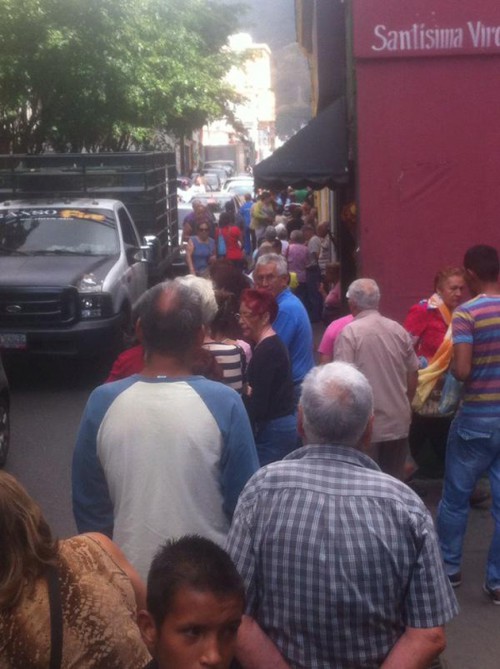After living abroad for more than four years, every time I get to go back home means a lot to me. Overtime, I realize how great my decision was of leaving Venezuela when I was 15.
The first time I went back I was still a teen, and, for me, nothing had changed in my city. All the business were still busy, and life in Lecheria was still the same.
But year after year, I found myself going back less and less often. In this last trip I took to Venezuela, it had been more than two years since the last time I had visited.
My ignorance about the actual situation of my country was shown at the moment my plane landed in. All the passengers need to go to the gate three to pick up their luggage, as instructed by the pilot. But what I didn’t know was that gate three was just a connected walkway to the back of the plane. Everyone would have to jump over other people picking up their own luggage to reach to the back door of the plane and wait until someone throw our bags to the pit of angry people.
Three days passed before I went out to explore the city, only to discover the mess I was living in. Driving around town, I saw that most of the supermarkets had lines of more than 200 people waiting outside, and when I asked my mom why that was happening, she replied, “It is diapers day.”

How come a country as rich as Venezuela has people waiting in line for three or four hours outside the supermarket because they haven’t had any diapers for the past two months? How will this society recover from this shift that has families using fabrics as diapers, like in the ancient age, and then wake up at 5 a.m. the next day to wait a four-hour line to get disposable diapers?
Right after the diapers episode, I went to fill up my car at the gas station. Knowing that Venezuela has been an exporter of oil for the past century, I was not shocked when I saw how much I paid to fill my Ford Fiesta. I paid six bolivares. What actually shocks me is how much this is in dollars. One dollar right now is 186 bolivares, so to fill my tank, I paied three cents.
How come the Venezuelan government has never thought of raising the price of gasoline? Economists know that this is a strategy to get more money into the country.
While in Lecheria, I asked one of the women in line at the supermarket to tell me how much a box of diapers cost on a national supermarket. Hoping that because she was in line to buy at a national market, the price would be less expensive than buying on a private store. She told me it was 500 bolívares ($2.60) for one packet of 24 diapers.
How is it possible for a Venezuelan who live on the minimum wage to buy one packet of diapers every week when the minimum wage of a month is 5000 BFS ($26)?
Let’s do some math. On average, Venezuelans will spend 1250 BFS ($6.60) a month only buying diapers for one baby. This means that they still have 3750 BFS($19) for the rest of the month.
To give another example to show the differences in economies between Venezuela and the U.S., one Big Mac combo at Mcdonald’s costs 180 BFS. So for one average Venezuelan, the minimum wage is not even close to what they would actually need to survive and maintain a family in the country.













